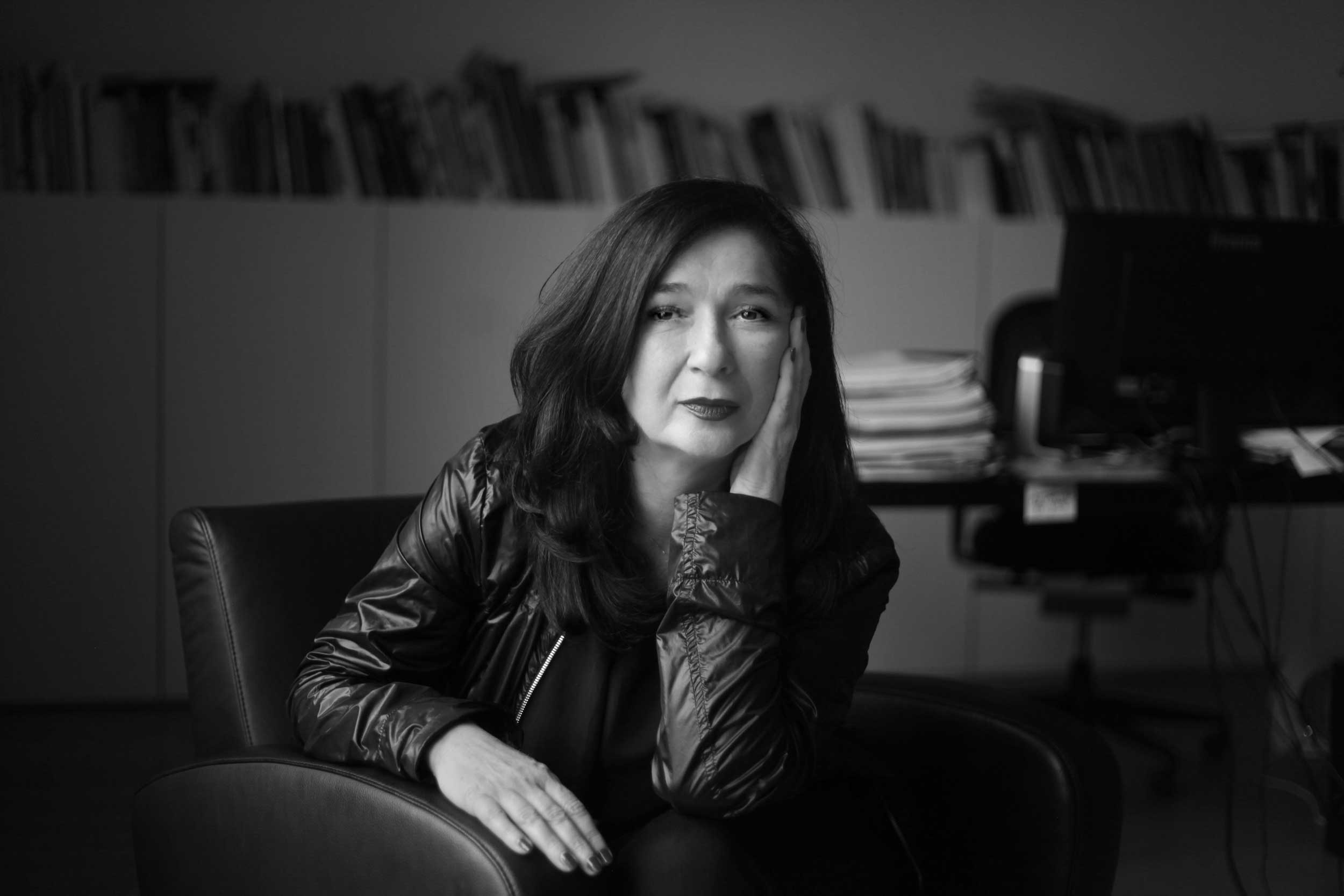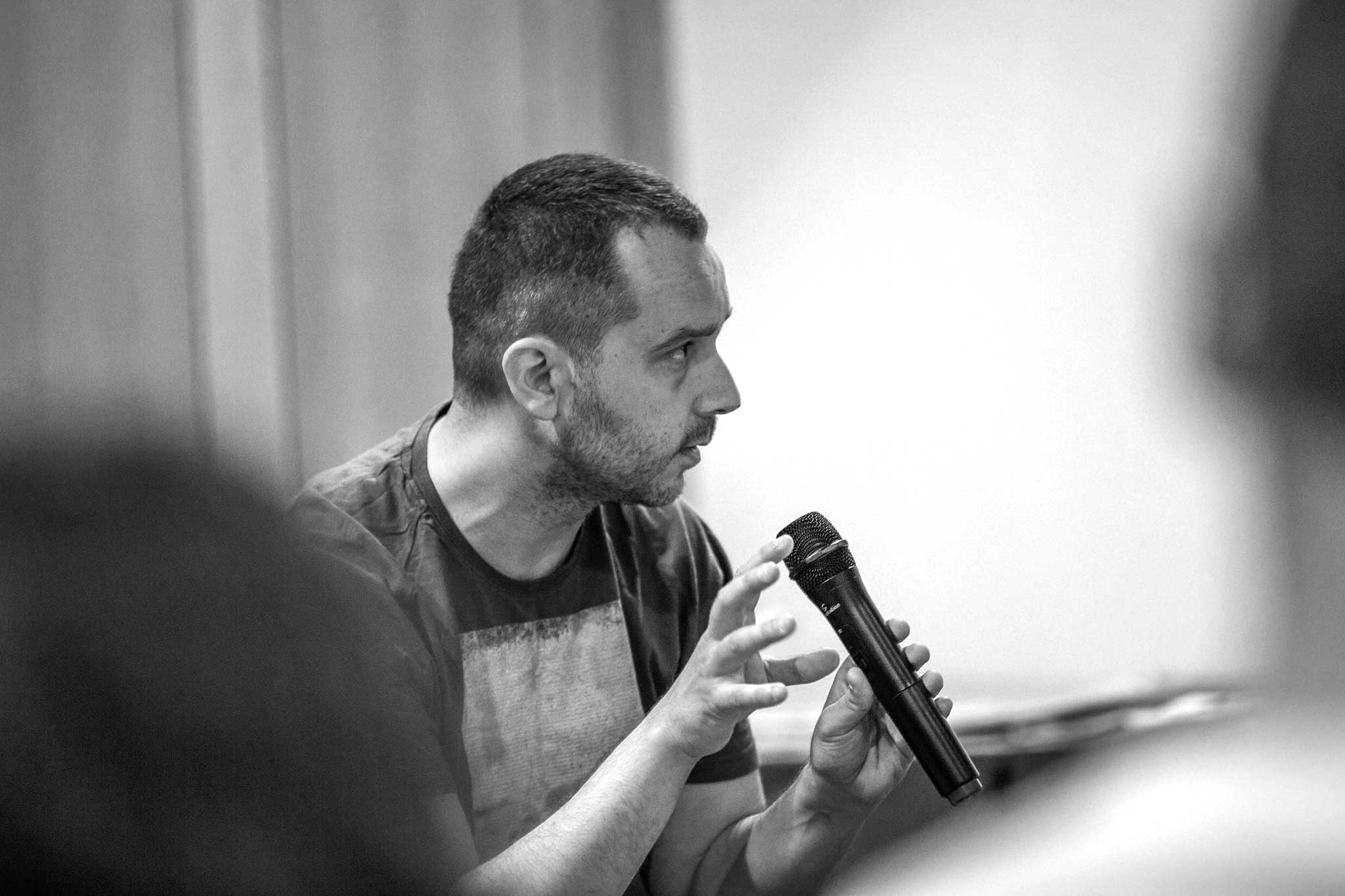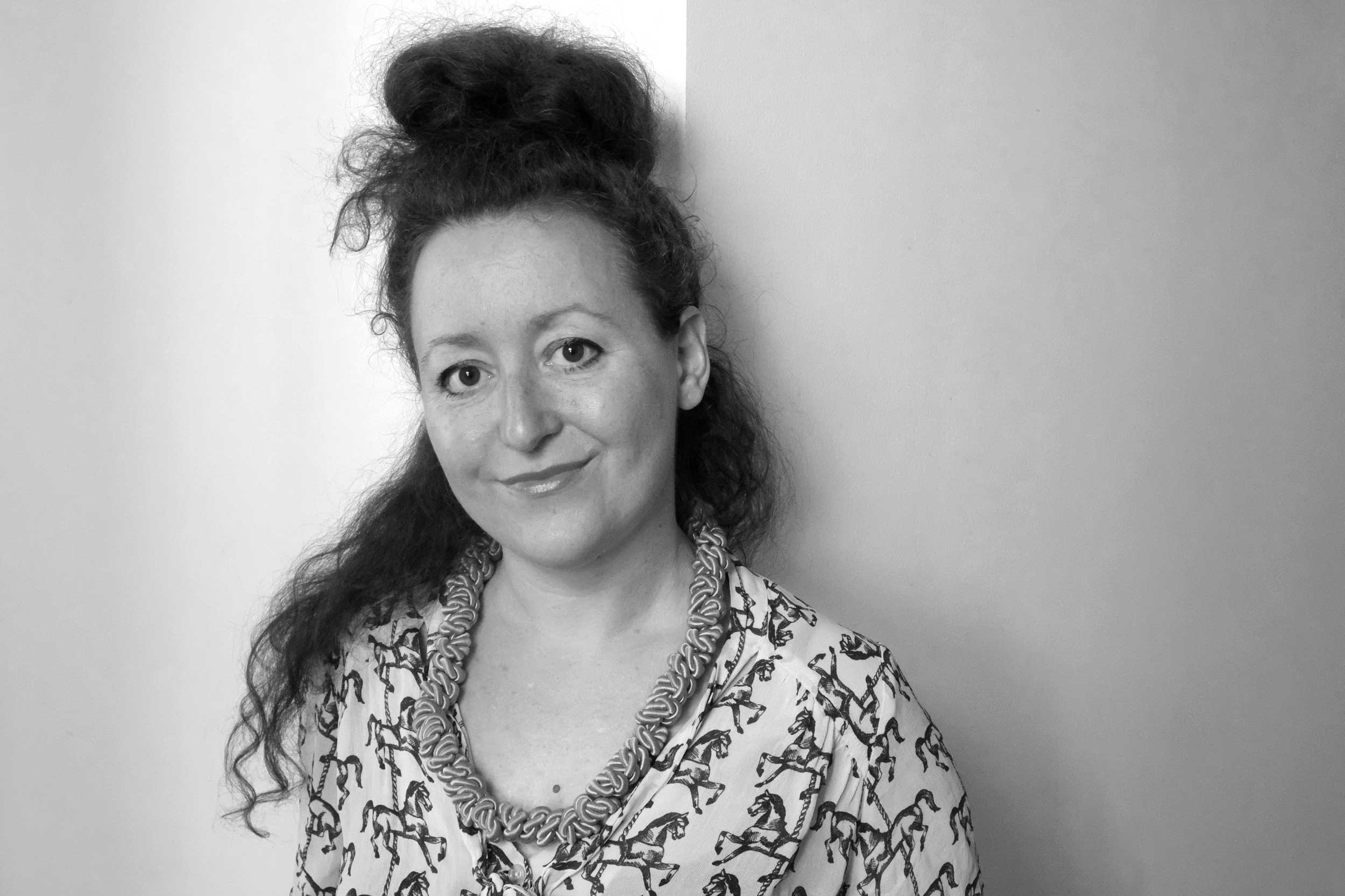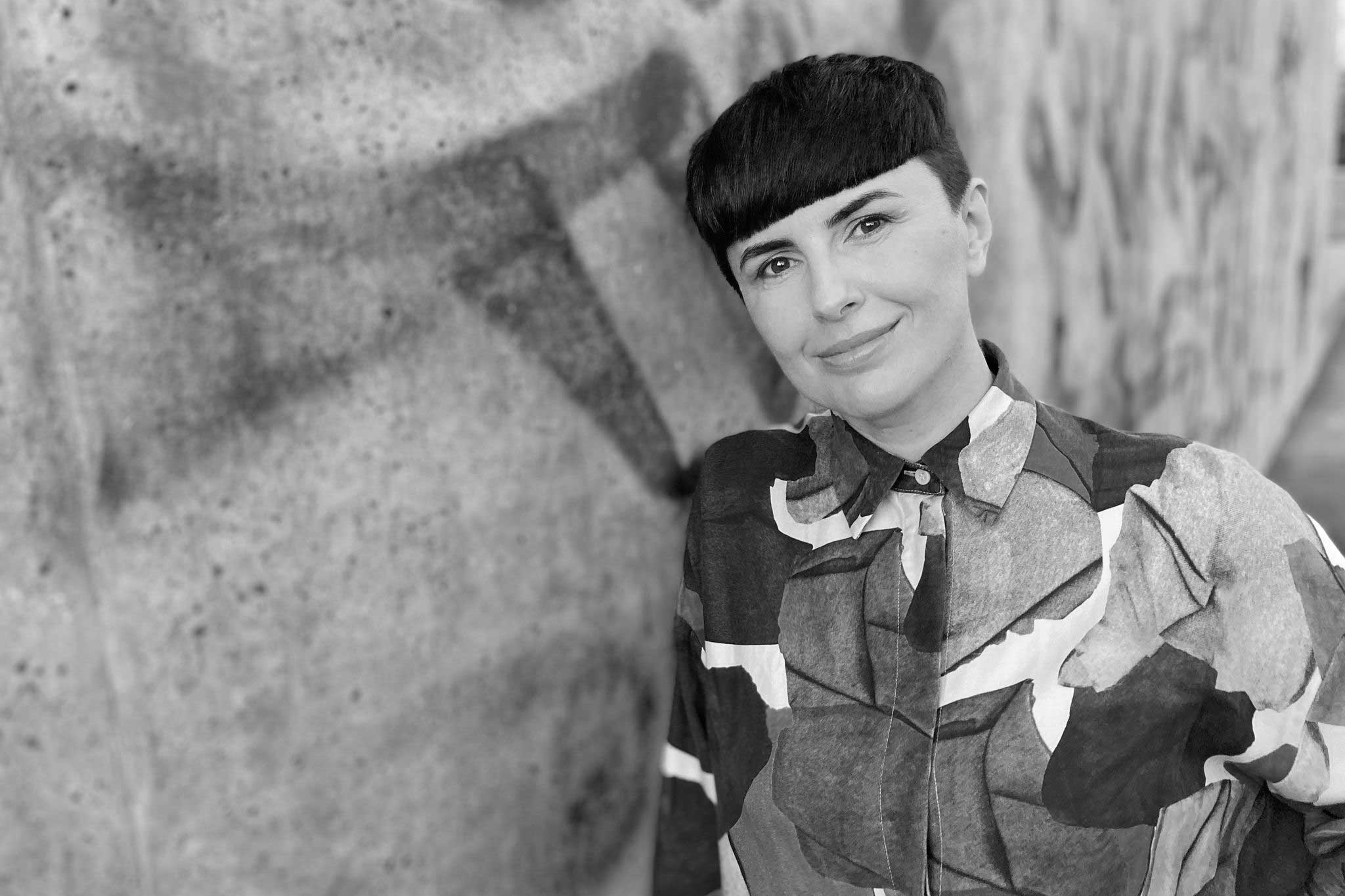













The Igor Zabel Award for Culture and Theory acknowledges exceptional achievements of curators, art historians, theorists, art writers, and critics whose work supports, develops or investigates visual art and culture in Central, Eastern, and Southeastern Europe. Named in honour of the distinguished Slovenian curator and art historian Igor Zabel (1958–2005), the award, an initiative of the ERSTE Foundation, has been conferred biennially since 2008. With total prize money of EUR 76,000, it represents one of the most generous and prestigious awards for cultural activities related to Central, Eastern, and Southeastern Europe.
A three-member international jury selects the laureate and recipients of two grants based on proposals given by ten nominators. The third grant is selected by the laureate.
Programme
20:00 ⁄ About the Igor Zabel Award
Introduction by Ksenija Horvat, moderator
20:05 ⁄ Jury’s statement on the Igor Zabel Award 2020 laureate
Presentation of the Igor Zabel Award 2020 laureate, Zdenka Badovinac by Anthony Gardner, art historian and jury member
20:15 ⁄ Video portrait and conversation with the laureate
Video portrait and conversation with Zdenka Badovinac, Igor Zabel Award 2020 laureate, by Ksenija Horvat, distinguished TV journalist and interview host
20:40 ⁄ Video portraits and conversations with the grant recipients
Video portraits and conversations with the Igor Zabel Award 2020 Grant recipients Ivana Bago, Slavcho Dimitrov, and Katalin Erdődi
21:00 ⁄ Closing words
Boris Marte, ERSTE Foundation
Urška Jurman, Igor Zabel Association
Laureate
Zdenka Badovinac
Curator, art historian, and director of the Moderna galerija
Ljubljana, Slovenia
The jury has awarded Zdenka Badovinac the Igor Zabel Award for Culture and Theory 2020 for her outstanding institutional leadership as the director of the Moderna galerija/Museum of Modern Art and the Museum of Contemporary Art Metelkova (+MSUM) in Ljubljana as well as for her radical curatorial work and significant contributions as a writer and editor to international discourses on the geopolitics of contemporary art in Eastern Europe and global art history. Zdenka Badovinac has been one of the most important and rigorous locally rooted and globally connected professionals in the field of cultural production in recent decades.

Read
Zdenka Badovinac became the director of the Moderna galerija in Ljubljana in 1993, during a tumultuous period characterized by radical socio-political changes and (re)formations of artistic discourses influenced by reconfigurations in local and global geopolitical power relations. Since the beginning of her mandate, and through her curatorial innovations, Badovinac has developed one of the most progressive, critical, and referential art institutions worldwide. Under her leadership, Moderna galerija has continued to build on its historical foundations (since 1948) of collecting and presenting the full breadth of 20th-century artistic production. Badovinac and her team have conceptually and curatorially expanded the museum’s vision and role in society by building on the paradigms of radical institutional critique and solidarity, and by forging new alliances and creating dialogues between generations of artists, modernist traditions and contemporary art, the East and the West. She successfully led the museum through renovation and expansion with the opening of +MSUM in 2011. At the same time, she worked towards providing favourable working conditions for local and international artists, and creating opportunities for raising critical awareness, learning, and knowledge exchange. Through relentless negotiations between various agents and (historical, political, artistic) narratives, she succeeded in creating new institutional frameworks that resist the hegemonic logic of art institutions. She is a founding member of L’Internationale, an important confederation of European modern and contemporary art institutions for the exchange, research, and production of art, collections, and archives. She initiated the first collection of Eastern European art, Moderna galerija’s Arteast 2000+ Collection.
Since early on in her curatorial practice, Badovinac focused on art from the region of former Yugoslavia, with a special focus on Bosnia during and after the Bosnian War. For example, she co-authored the exhibition For the Museum of Contemporary Art Sarajevo 2000 and the symposium Living with Genocide, both taking place in Moderna galerija in 1996. She also paid particular attention to processes of rewriting the history of international avant-garde movements, a focus that resulted in the significant exhibition Body and the East: From the 1960s to the Present (1998) and continued with such large-scale exhibitions as 2000+ Arteast Collection: The Art of Eastern Europe in Dialogue with the West. From the 1960s to the Present. Exhibition of Works for an Emerging Collection (2000); 7 Sins: Ljubljana–Moscow (2004, with Viktor Misiano and Igor Zabel); Interrupted Histories: Arteast Exhibition (2006); Museum of Parallel Narratives (2011, MACBA, Barcelona); and the Present and Presence at the +MSUM (since 2011, in co-curation). Her most important recent projects include: NSK from Kapital do Capital. Neue Slowenische Kunst – An Event of the Final Decade of Yugoslavia (2015), which traveled to the Van Abbemuseum in Eindhoven, Garage Museum of Contemporary Art in Moscow, and the Reina Sofía Museum of Art in Madrid; The Heritage of 1989. Case Study: The Second Yugoslav Documents Exhibition (2017, with Bojana Piškur); NSK State Pavilion, 57th Venice Biennale (2017, with Charles Esche); and Sites of Sustainability: Pavilions, Manifestos and Crypts, as part of the exhibition Hello World: Revising a Collection (Hamburger Bahnhof – Museum für Gegenwart – Berlin, 2017).
These curatorial projects attest not only to Badovinac’s unrivalled knowledge of local and regional art histories, but also to her radical and innovative capacity to entwine local and global urgencies, historical depth, and contemporary relevance.
Badovinac was the Slovenian Commissioner at the Venice Biennale from 1993 to 1997 and again in 2005. She was the Austrian Commissioner at the São Paulo Biennial in 2002 and the President of CIMAM, the International Committee for Museums and Collections of Modern Art, from 2010 to 2013.
She has been a prolific writer and lecturer, making immense contributions to new paradigms in art theory, politics of art, curatorship, practices of exhibiting, institutional critique, and strategies of solidarity within the (institutional) contemporary art field. Her most recent book, Comradeship: Curating, Art, and Politics in Post-Socialist Europe (ICI, New York, 2019), is a unique collection of critical writing offering in-depth reflections on counter-hegemonic curatorial strategies and artistic discourses.
Thus, the jury recognizes Zdenka Badovinac for her exceptional professional commitment, expertise, intellectual contribution, and outstanding personal devotion in generating changes in the field of artistic and public discourse. For more than 25 years, she has been an important voice in international discourses on the geopolitics of contemporary art in Eastern Europe and global art history as well as in reaffirming art’s role in society and in creating new and reconfiguring existing spaces of cultural production. Zdenka Badovinac’s remarkable achievements prove that the tremendous subversive potential for radical change lies not only in professional expertise, but also in combining this expertise with personal devotion, a sense of solidarity, and a commitment to building alliances.
Grant recipients
Slavcho Dimitrov
Activist, cultural theorist, and curator
Skopje, North Macedonia
Grant according to the jury’s selection
The Igor Zabel Award Grant 2020 is given to Slavcho Dimitrov in recognition of his exceptional contributions to reimagining the cultural and social life of the Western Balkans region, and for bringing LGBTQIA+ and women’s rights and struggles to the heart of this vision. As marginalized communities face increasing repression and violence, Slavcho Dimitrov’s work across art and activism exemplifies how we might respond productively and urgently to this situation.

Read
Slavcho Dimitrov is an activist, writer, teacher, and curator. He is also a campaigner for non-normative artistic and identity practices in North Macedonia and Serbia and a fighter against parochial neo-nationalisms. The Igor Zabel Award Grant 2020 is awarded to Dimitrov for his exceptional contributions to reimagining the cultural and social life of the Western Balkans region, and for bringing LGBTQIA+ and women’s rights and struggles to the heart of this vision.
For more than a decade, Dimitrov has worked tirelessly to resist the resurgence of a neo-nationalism that depends on queerphobia and violence directed at anyone who does not identify as heteronormative or cis-male. During this time, governments across Europe, including those in North Macedonia and Serbia, have reduced funding health services for women’s and LGBTQIA+, restricted access to adequate information services for women and queer people in need, shut down pride marches and made the celebration and understanding of difference increasingly difficult. Dimitrov champions a very different world, one grounded in diversity and opportunities for celebrating it. From 2011 to 2019, he was the executive director of the Coalition for the Protection and Promotion of Sexual and Health Rights of Marginalized Communities, an important non-governmental organization based in Skopje. Since 2012, he has served as one of the co-founders of the IPAK.Centar, a research centre for cultures, politics, and identities in Belgrade and, since 2011, as the founder and program coordinator for one of Serbia’s major international cultural initiatives, the Summer School for Sexualities, Cultures, and Politics. For the last five years, he has curated the programme for the Skopje Pride Weekend, an interdisciplinary celebration of queer arts, cultures, bodies, and ideas, and an event that stands firm against the destructive and regressive forces of phobic neo-nationalism.
In the context of these initiatives, Dimitrov has created new networks between communities, practitioners, and activists in Skopje and Belgrade and performers and writers such as boychild, Vaginal Davis, Jack Halberstam, David Halperin, and David Hoyle and the Lipsinkers. He is a prolific curator, working especially closely with artists in the fields of performance and identity to create exhibitions such as: Archive of Queer Experiences at the Chifte Hamam, National Gallery of Macedonia in 2012; All Beauty Must Die (with Velimir Zernovski) in 2014; and Affective Aliens: The Art of Failure, a group exhibition at the National Gallery of Macedonia in 2014. Dimitrov has pursued an equally prolific writing and research career, authoring and editing three books, among them Impossible Confessions: Subjectivity, Power and Ethics (Skopje, 2014), and also writing essays for journals including Identities, MASKA, and Aspasia and for anthologies published in Austria, the UK, Serbia, and North Macedonia.
Central to Dimitrov’s cultural and artistic politics is the need for various publics to come together and to collectively generate new lifeworlds and sensibilities. These publics – whether in summer schools or pride festivals, research centres or advocacy groups, museums hosting his exhibitions or libraries holding his books – share common features. Above all, they share a resolute grounding in local conditions, a drawing together of local and international practitioners to reimagine those conditions, and a space in which discussion, affect, desire, and debate can spark new cultures of politics and new politics of culture.
The demand for such cultural and social commitment, combining local audiences and international networks, is more pressing than ever. As marginalized communities face increasing repression and violence, Slavcho Dimitrov’s work across art and activism exemplifies how we might respond productively and urgently to this situation: by creating new platforms and ideas, writing and curating, and working together with our differences and across media and platforms to generate new collective practices.
Katalin Erdődi
Curator, dramaturg, and cultural worker
Budapest, Hungary / Vienna, Austria
Grant according to the jury’s selection
The Igor Zabel Award Grant 2020 is given to Katalin Erdődi in recognition of her locally embedded and inclusive curatorial practice, distinguished by its scope as well as by its critically reflexive and joyful qualities. Informed by a variety of artistic and activist methods, her work aims to enhance bottom-up social participation and cross-disciplinary collaboration, trigger processes of democratization, and raise ecological awareness.

Read
For Katalin Erdődi, the division between art and life does not exist. Rather, she conceives of art as a social practice, as a meaningful tool that allows us to explore and shape contemporary realities. Her work as a curator, dramaturg, and researcher unfolds both the critical and imaginative potential of contemporary art. It searches for cross-disciplinary and transversal collaboration and fosters different forms of artistic expression in specific contexts. Erdődi carefully accompanies artistic practices and facilitates artistic production by thoughtfully engaging with varied audiences. Informed by a variety of artistic and activist methods, her work aims to enhance bottom-up social participation, trigger processes of democratization, and raise ecological awareness.
Erdődi’s strong interest in cross-disciplinary work stems not only from her mixed background in contemporary performance and visual arts, but also from her studies in economics, social sciences, and political theory. Her practice intersects these fields of critical thought to develop politically engaged artistic and curatorial strategies and to present art in the public space. She realizes projects in different formats – ranging from performance through exhibition-making to site-specific and process-oriented approaches – and thus explores the possibilities of art as a social practice.
Erdődi’s current and recent curatorial projects investigate processes of rural change and socio-political transformation in the Hungarian countryside, including News Medley in collaboration with the artist Alicja Rogalska and the Women’s Choir of Kartal (OFF-Biennale Budapest, 2021), and I like being a farmer and I would like to stay one with the artist Antje Schiffers and three farmers from Hungary (Ludwig Museum Budapest, 2017–2018). She connects these hands-on participatory projects with her academic research on collaborative artistic and curatorial practices in the post-socialist rural space.
Erdődi has worked as a curator for art institutions and festivals, such as steirischer herbst Graz, Impulse Festival in Düsseldorf/Köln/Mülheim, brut/imagetanz festival Vienna, GfZK – Museum of Contemporary Art Leipzig, and Trafó House of Contemporary Arts Budapest. As a dramaturg, she has collaborated with the artists Sonja Jokiniemi, Igor and Ivan Buharov, Oleg Soulimenko, Gin Müller, Sööt/Zeyringer, and Doris Uhlich.
However, Katalin Erdődi is less interested in authorial, institutional positions per se than she is in creating public platforms for knowledge exchange and shared experience. As an independent curator, she has initiated and curated a diverse range of projects, among others Enjoy Austria with the artist Núria Güell (Vienna, 2016), Social Honey with the artist group finger (Budapest, 2013), the symposium politics of the small act (Leipzig, 2012), and PLACCC Festival, an international festival for site-specific performance and art in public space that she co-founded and co-curated with Fanni Nánay (Budapest, 2008–2011).
Katalin Erdődi’s commitment to institutional critique and her self-reflexive approach to curatorial work have allowed her to make uncompromised professional decisions.
Ivana Bago
Curator, art historian, and art writer
Zagreb, Croatia
Grant according to the laureate’s selection
The Igor Zabel Award Grant 2020 is given to Ivana Bago in recognition of her excellence and insistence on the art historical research, writing, and exhibiting of Yugoslav and Eastern European art in the past decade as well as for her remarkable contribution to the formation of new approaches to writing and curating in this region.

Read
Ivana Bago is an independent scholar, writer, and curator. She began her career as an independent curator and writer in Zagreb, Croatia where she developed a collaborative practice firmly situated in its immediate social and political context. The project Where Everything is Yet to Happen (2009–2010) – co-curated with Antonia Majaca for the Spaport Biennale in Banja Luka, Bosnia and Herzegovina – already presented a comprehensive effort to address the destruction of socialist and multinational Yugoslavia from the perspective of contemporary art production. By employing a process-based approach, the project replaced the idea of a central exhibition in favour of a series of discursive, exhibitionary, and intersubjective “exposures”. The experimental and research-based method is also characteristic of other collaborations between Bago and Majaca within Delve – Institute for Duration, Location and Variables, which the two co-founded in Zagreb in 2009. Through Delve they have developed projects for venues ranging from Škuc Gallery in Ljubljana to the University Museum of Contemporary Art in Mexico City, while at the same time participating in the shaping of the independent cultural scene in Zagreb and the region.
Bago’s curatorial work has been increasingly marked by a dedication to art historical research and writing, which has become her primary focus in recent years. She has published extensively on conceptual art, the history of exhibitions and curating, performance, feminism, (post)Yugoslav art, and post-1989 art historiographies. Her writing on Croatian and Yugoslav art and the curating of the 1960s and 1970s has informed a new understanding of the relation between aesthetics and (geo)politics in socialist Yugoslavia. Her membership on the editorial board of ARTMargins represents a recognition of the importance of Bago’s scholarly contributions.
Bago’s current research project, Yugoslav Aesthetics: Monuments to History’s Bare Bones, emerges from her recently defended doctoral dissertation from Duke University. In it, she proposes the notion of a “Yugoslav aesthetics” to examine the historical and contemporary relation between art and Yugoslavism, a vision of the emancipated, supranational political community that was thoroughly dismantled by the triumph of ethnic nationalisms in the 1990s.
Feminism is another central commitment of Ivana Bago’s work. She was a researcher for Gender Check: Femininity and Masculinity in the Art of Eastern Europe, the landmark exhibition curated by Bojana Pejić (2009–2010). Her art historical engagement with Sanja Iveković’s work now continues in the form of her most recent curatorial and research project, Meeting Points: Documents in the Making, 1968–1982, which centers around Iveković’s archive.
The Igor Zabel Award Grant 2020 will provide Ivana Bago with important support for her ongoing independent curatorial and art historical endeavours.
Jury and nominators
2020 jury
Šejla Kamerić
artist, Sarajevo
Anthony Gardner
art historian, Oxford
Franciska Zólyom
curator, director of the GfZK – Galerie für Zeitgenössische Kunst Leipzig
2020 nominators
Pawel Althamer
artist, Warsaw
Nataša Petrešin-Bachelez
curator, writer, editor, Paris/Ljubljana
Vjera Borozan
art historian, curator, Prague
Mira Gakjina
curator, director of the Museum of Contemporary Art, Skopje
Herwig Höller
art writer, Moscow/Graz
Eva Khachatryan
curator, Yerevan
József Mélyi
art historian, critic, Budapest
Deimantas Narkevičius
artist, Vilnius
Sven Spieker
editor, ARTMargins
Raluca Voinea
curator, Bucharest
About the event
Visual concept of the space: Vadim Fiškin
Graphic design: Anja Delbello & Aljaž Vesel ⁄ AA
Direction: Tina Ščavničar
Robot Attitude: Stefan Doepner
Igor Zabel Award jingle: Luka Prinčič ⁄ Nova deViator
Production ⁄ Igor Zabel Association: Urška Jurman, Mateja Kurir, Urška Comino, Hana Cirman
Production ⁄ Moderna galerija: Adela Železnik, Tomaž Kučer
Streaming: Branko Lenarčič ⁄ Radio Student video section
Tech crew: Borut Cajnko, Borut Bučinel, Tomaž Hrovat, Miha Zupan
The award ceremony is hosted by Moderna galerija, Ljubljana, available through online streaming only, and will be held in English.